FAQs
We have listed some very frequently asked questions and some informative answers for you.
Young Dancers Program Levels
Our young dancer program levels place children according to developmental milestones according to age and academic placement. For the 2024-25 season, our age cutoff date is September 1, 2024
• Dancers entering Kindergarten in Fall 2024 are placed in Pre-Ballet for Kindergarten.
• Dancers entering Kindergarten in Fall 2025 are placed in Pre-Ballet for Pre-K.
• Dancers not entering Kindergarten until Fall 2026 are placed in Dance for 3’s Independent, and must be 3 by September 1, 2024.
• Dancers who are 2 by September 1, 2024 and older three year olds not ready to dance independently are placed in Dance for 2s and 3s with Companion.
• Dancers should be prepared to spend 2-3 years in any given level, and sometimes even longer.
• Dancers should expect to be placed according to their own individual abilities and training experience, never based on age.
• New students should be assessed by faculty in a trial placement class when possible.
• Dancers entering First Grade through Third grade, regardless of prior dance experience, are placed in our Level I which expands upon our pre-ballet curriculum.
• Dancers can expect a progress report emailed to them at the end of the Fall semester to enhance and reinforce the verbal feedback they have received in class all semester.
• Dancers should understand that while Ballet is not required to study other disciplines, those taking ballet almost always advance more quickly in their other disciplines. Similarly, those taking multiple classes per week generally advance more quickly as well.
• Consistent attendance and prompt arrival to the start of class is vital to the success of the dancer’s progression in training.
• Dancers can expect to spend more time in each level than in previous years. We have five levels to accommodate twelve grades of school, and dancers spend time at the introductory level, time working AT their level, and time fine tuning at the advanced stage of each level. Many students wish to skip the last step, and “be challenged” amongst the higher level before they are ready to benefit. Skipping the stage of advanced learning in each level is detrimental to a dancer’s growth and causes for gaps in training. Please trust the professional expertise of your child’s instructors, Executive Director, and Educational Director to ensure a thorough, healthy, complete dance education. There are no short cuts in dance training. We encourage the self-disciplined strategies of self-challenge and deep investigation of technique at the level they are working in. A little encouragement at home goes a long way to support what we are teaching in class and what is reflected in progress reports and verbal feedback.
While many schools offer various dance-style themed classes, we believe that children are best served with a strong foundation in creative movement and pre-ballet before their young bodies are able to execute advanced stylized movements, and before their minds are able to process the nuanced and mature concepts. Thus, our dancers get a well-rounded foundation in dance education through our extensive pre-ballet curriculum offering age-appropriate creative exploration through a structured class syllabi.
Dancers should have an awareness that when multiple months are taken off over the summer, progression is lost and needs more time to be rebuilt upon return to the studio. While every dancer has different goals, it is unreasonable to expect that a dancer training on and off will yield the same results as a dancer training year-round.
Dancers in Levels I and II are introduced to the basic concepts of Contemporary and Modern disciplines, and by Level III can choose to study them exclusive of each other.
Modern Dance covers the era of dance after the turn of the twentieth century up to the present time. At RCD, students learn the technique of American Modern Dance pioneer Martha Graham, whose work, like other modern dance greats of the time, challenged traditional ballet, creating a more humanistic style of dance, paralleling the same movements across all media of the time. This historically significant dance style coincides with the architectural movements of Frank Lloyd Wright, the Cubism of Pablo Picasso, and the scores of Igor Stravinsky. Modern dance is considered to be an essential part of most college dance programs and we are proud to boast a strong modern dance program where students can study as young as First Grade. Musical accompaniment is often rhythmic drumming, tribal World beats, and minimalist piano scores.
Contemporary Dance’s definition varies from studio to studio, and at RCD classes are considered to be influenced by Lyrical Jazz, Ballet, and Modern and offer a more commercial approach to dance. This dance style is featured on many popular dance shows like “So You Think You Can Dance”. Generally, this movement is considered to have followed the Modern dance and art movement, taking us from the experimental dance studies of the 1970’s to today’s commercial dance scene. Musical accompaniment to Contemporary dance ranges from classical compositions, to experimental neoclassical compositions, to popular rock music.
• New dancers must have had at least one year of prior dance training to be eligible to audition.
• Returning RCD dancers must have been enrolled for a full year of ballet (Fall and Spring semesters).
• Dancers must attend the audition to participate.
• Dancers in First Grade and up only may audition, due to the extensive rehearsal and performance schedule.
• Dancers are expected to attend all rehearsals, including tech week leading up to the weekend shows.
• Dancers must attend the Sunday rehearsal of Thanksgiving weekend, which includes a fitting/dress rehearsal.
• Dancers in Levels I-III can expect to receive one role only.
• Dancers in Levels IV and V may receive one or two roles but may opt to have only one role before the audition. This will limit them to one weekend day per week (Saturday or Sunday only) during the main rehearsal period.
• Tiny Dancer, Dance for 2’s & 3’s Companion, and Dance for 3’s Independent celebrate the end of the year in their last June class with invited guests for an informal in-house showing.
• Dance for 3’s, Pre-Ballet for Pre-K, and Pre-Ballet for Kindergarten are eligible for the annual Spring Concert in June and the Holiday Showcase in December.
• Dancers in Levels I – III are eligible for the annual Spring Concert in June and the Holiday Showcase in December.
• Dancers in Levels IV – V are eligible for the annual Spring Concert in June and the Holiday Showcase in December, and may audition for Ridgefield Civic Ballet with the following requirements:
• 3 minimum ballet technique classes per week
• 1 minimum pointe class per week
• 2 additional disciplines per week, one of which must be Modern or Contemporary (the other may be a fourth ballet class)
Pointe work is an extension of ballet training and is reserved for advanced dancers strong enough to execute the demands. Faculty approval is required. We are aware that we typically do not place students en pointe until later than most dance schools. The following factors are considered:
• Dancers must have had at least three full years of ballet training.
• Dancers must be in Level IV.
• Dancers must be at least eleven years old and show growth plate closure to prevent long-term injury.
• Dancers must take a bare minimum of two ballet technique classes per week, though more are strongly recommended.
• Pre-pointe is offered to anyone in Level III taking a minimum of two weekly ballet technique classes. Pre-pointe is not a guarantee of a timeline for going on pointe but is offered to help dancers strengthen and condition in preparation for eventual pointe work during the Level III years.
• For Tiny Dancer and Dance for 2s and 3s with Companion classes, one accompanying adult is expected to participate in each class.
• Passive observation is permitted, but please do not tap on windows or ask to enter the studio from the Main Street doors.
• While our Studio C Main Street windows offer a viewing opportunity, we ask parents to refrain from interacting with children as it causes significant distractions.
• Dance for 3’s Independent and up through Level V invites limited friends and family members to observe one day at the end of each semester.
• Adults are not permitted in the studio for the Dance for 3s Independent class. Some dancers may need more time before they are ready to dance independently.
• For 3-year-olds not ready to separate from their adult, please choose the Dance for 2s and 3s with Companion class.
• At the end of each semester, during the last class, limited additional friends and family members are invited to observe.
• Interacting, participating with, and encouraging the dancer.
• Guiding the dancer and keeping them on task,
• Taking the child to the bathroom,
• The participating adult has an active role, including:
• Additional adults and siblings are not permitted, as more than one adult per child can be too distracting for an optimal experience. This class is not designed to be a full family activity.
• Cameras and phones can be distracting to dancers and faculty.
• At times, faculty may invite you to take pictures or video during visitor weeks, but only if they have ensured that all students in the class have given permission to do so.
• Our curriculum and syllabi are the intellectual property of RCD and RCD Teaching Artists/Faculty.
• Some students are under contractual agreements (such as modeling contracts) which prohibit imaging to be captured without express permission.
• Some parents may not be comfortable with images of their child being taken without permission.
• Students should not arrive more than fifteen minutes early to class and should be picked up promptly at dismissal time.
• If your young dancer cannot attend to using the bathroom by themselves, we ask that you remain in the building (in the Parent Lounge) to assist with any trips to the bathroom. RCD staff cannot assist with bathroom trips, as we are not a licensed and insured daycare facility.
• Dancers should never be inside studios unattended, including during parent participation classes. Please do not bring your child into the studio or let them enter before the instructor invites them in.
• RCD does not have staff available to supervise children outside of their class times.
• Students should not be in the building during days and times when they do not have classes.
• Parents, siblings, and caregivers should use the parent lounge, but only dancers should use the student lounge and dressing rooms.
As a conservatory, we follow industry standards of classical theatre dance. Dress codes are a traditional part of a proper dance class. It allows faculty to see postural alignment and allows us to make adjustments. Our dancers take pride each time they advance to the next level’s “color” leotard and provides a consistent, uniform look to each group of dancers. Young dancers must wear hair away from the face in a ponytail, bun, or other up-do, and by Level I must wear a bun for ballet classes
• RCD was established as a nonprofit organization following the passing of its founder, Patricia Schuster.
• RCD enjoys a board of directors comprised of professional volunteers who oversee the wellness and success of RCD’s leadership and programming.
• As a nonprofit, we are eligible for funding resources that help support our involvement in community-engaged projects.
• As a nonprofit organization, we are committed to serving the communities of Ridgefield and surrounding areas, including Wilton, Redding, Danbury, Katonah, North Salem, South Salem, Waccabuc, Cross River, and Brewster in New York. Our students come from local areas like Ridgefield and as far as Ossining.
RCD boasts a professional faculty, many who are still active, high level performing artists for dance companies, some of which are world-renowned. Our faculty members have been members of prestigious dance companies or freelance performers with extensive careers. RCD supports its teaching artists by encouraging performing opportunities. This means that our teachers are staying active and are relevant in the professional dance community. Thank you for understanding that sometimes teachers are engaged in touring commitments. RCD always provides top-notch guest artists to cover in those cases.
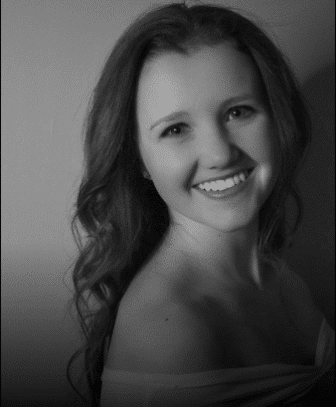 Avery Lasky is an ABT® Certified Teacher, who has successfully completed the ABT® Teacher Training Intensive in Pre-Primary through Level 3 of the ABT® National Training Curriculum. Avery Lasky received her pre-professional training at New England Ballet and Ballet Etudes here in Connecticut. She was a student of Christina Fagundes for many years, who was a Soloist with American Ballet Theatre. Avery studied ballet at many summer intensives, including Burklyn Ballet, Joffrey Ballet, Kaatsbaan, Next Generation Ballet, Boston Ballet, and Philadelphia Ballet. Avery got accepted into the Philadelphia Ballet trainee program and trained pre-professional from 2017-2019. She danced in the company performances of George Balanchine’s The Nutcracker, Sleeping Beauty, and Romeo and Juliet. She was also a part of the School of Philadelphia’s Ballet outreach performances, school performances, and many of Philadelphia Ballet’s second companies’ performances. Avery completed Boston Ballet’s Adaptive Dance Teacher Training and is currently one of the teachers for Connecticut Dance Schools, Dance 4All Abilities program, and the Ridgefield Conservatory of Dance adaptive dance program. In addition, Avery is a certified 500-hour yoga teacher with certifications in kids yoga and yoga for autism. Her passion is sharing her love of ballet to the younger generation.
Avery Lasky is an ABT® Certified Teacher, who has successfully completed the ABT® Teacher Training Intensive in Pre-Primary through Level 3 of the ABT® National Training Curriculum. Avery Lasky received her pre-professional training at New England Ballet and Ballet Etudes here in Connecticut. She was a student of Christina Fagundes for many years, who was a Soloist with American Ballet Theatre. Avery studied ballet at many summer intensives, including Burklyn Ballet, Joffrey Ballet, Kaatsbaan, Next Generation Ballet, Boston Ballet, and Philadelphia Ballet. Avery got accepted into the Philadelphia Ballet trainee program and trained pre-professional from 2017-2019. She danced in the company performances of George Balanchine’s The Nutcracker, Sleeping Beauty, and Romeo and Juliet. She was also a part of the School of Philadelphia’s Ballet outreach performances, school performances, and many of Philadelphia Ballet’s second companies’ performances. Avery completed Boston Ballet’s Adaptive Dance Teacher Training and is currently one of the teachers for Connecticut Dance Schools, Dance 4All Abilities program, and the Ridgefield Conservatory of Dance adaptive dance program. In addition, Avery is a certified 500-hour yoga teacher with certifications in kids yoga and yoga for autism. Her passion is sharing her love of ballet to the younger generation.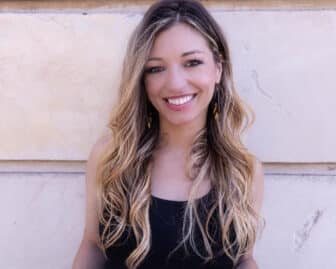 Danielle Marie Fusco is an award-winning Italian-American dancer, choreographer, aerialist, and shamanic healer, renowned for her multifaceted career in commercial theatre, concert dance, arts-in-education, and holistic healing. Danielle’s off-Broadway and Equity credits include Tink at the NY Musical Festival, The Anthem at the Lynn Redgrave Theatre, and The Vanity at Theatre Row’s Clurman Theatre. She has also performed at the NY Innovative Theatre Awards, Friday Nights for STREB LAB for
Danielle Marie Fusco is an award-winning Italian-American dancer, choreographer, aerialist, and shamanic healer, renowned for her multifaceted career in commercial theatre, concert dance, arts-in-education, and holistic healing. Danielle’s off-Broadway and Equity credits include Tink at the NY Musical Festival, The Anthem at the Lynn Redgrave Theatre, and The Vanity at Theatre Row’s Clurman Theatre. She has also performed at the NY Innovative Theatre Awards, Friday Nights for STREB LAB for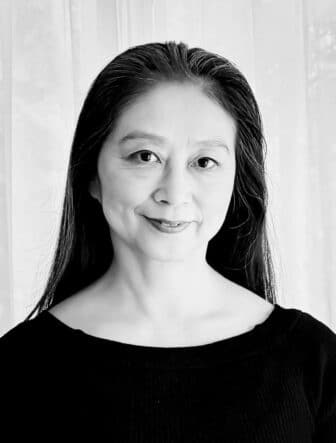 Grace Reddy (formerly Liu Zhao Hui) trained at China’s national school of dance, the Beijing Dance Academy, studying classical Chinese dance and ballet under Russian masters following the Vaganova System. Upon graduation from the Academy, she joined China’s foremost dance company, the Chinese Dance Theater. During a 13-year career with the company, she toured throughout China and other Asian countries performing on stage, in movies and on television. She has been a featured dancer in many major Chinese dance productions including A Dream of Red Mansions, The Princess of Wen Cheng, Tong Que Tai, Bao Lian Deng, and Deng Xiao Ping Song Ge. She has performed as a visiting artist at universities in the United States and toured the Hawaiian Islands performing a program of classical Chinese dance under the auspices of Beijing University. After immigrating to the United States, Grace founded the Tang Yung School of Chinese Dance and has performed with the Beijing Dance Company of New York and the Zhong Mei Dance Company.
Grace Reddy (formerly Liu Zhao Hui) trained at China’s national school of dance, the Beijing Dance Academy, studying classical Chinese dance and ballet under Russian masters following the Vaganova System. Upon graduation from the Academy, she joined China’s foremost dance company, the Chinese Dance Theater. During a 13-year career with the company, she toured throughout China and other Asian countries performing on stage, in movies and on television. She has been a featured dancer in many major Chinese dance productions including A Dream of Red Mansions, The Princess of Wen Cheng, Tong Que Tai, Bao Lian Deng, and Deng Xiao Ping Song Ge. She has performed as a visiting artist at universities in the United States and toured the Hawaiian Islands performing a program of classical Chinese dance under the auspices of Beijing University. After immigrating to the United States, Grace founded the Tang Yung School of Chinese Dance and has performed with the Beijing Dance Company of New York and the Zhong Mei Dance Company.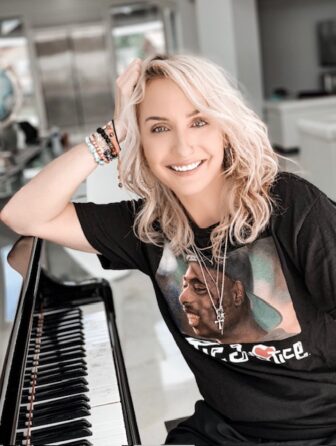
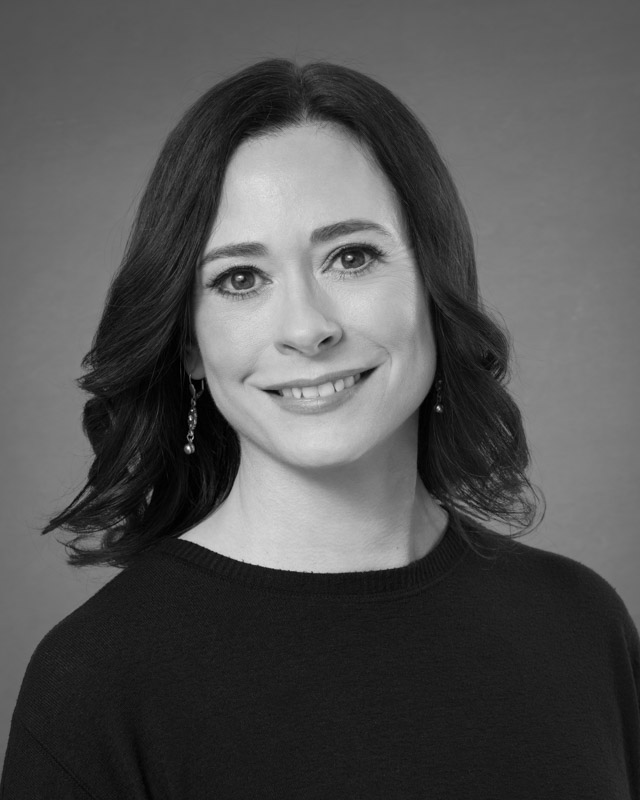
 Marlon Mayers discovered his passion for dance at the age of 14 where he began his dance training when accepted into Frank Sinatra School of the Arts. While attending Frank Sinatra, he also attended Ballet Hispanico, The Abrons Arts Center and The Martha Graham school of Contemporary Dance. Graduating from Frank Sinatra School of the Arts in 2009, Marlon attended Marymount Manhattan College as a B.F.A dance major. Marlon has landed wonderful opportunities that allowed him to work with a wide range of choreographers from different styles of dance such as Jessica Lang, Laurie-Ann Gibson, Daniel Catanach, and Larry Keigwin, just to name a few. Since then he has been a Principal Dancer with the Abrons Arts Center Dance Ensemble, a Corp de Ballet dancer with Urban Ballet Theater and a freelancer with small modern dance companies based in New York City. Although Marlon loves performing he has a passion for teaching. He has had the opportunity to choreograph on the graduating class at Frank Sinatra school of the Arts as well as teach and be a mentor for the underclassmen. He has also presented his own choreography with the American Ballet Theater’s “Make a Ballet” and has submitted and showcased his works to numerous arts festivals. When not rehearsing and staging his own works, Marlon spends his time in a studio teaching and sharing great life lessons to students throughout the greater New York area.
Marlon Mayers discovered his passion for dance at the age of 14 where he began his dance training when accepted into Frank Sinatra School of the Arts. While attending Frank Sinatra, he also attended Ballet Hispanico, The Abrons Arts Center and The Martha Graham school of Contemporary Dance. Graduating from Frank Sinatra School of the Arts in 2009, Marlon attended Marymount Manhattan College as a B.F.A dance major. Marlon has landed wonderful opportunities that allowed him to work with a wide range of choreographers from different styles of dance such as Jessica Lang, Laurie-Ann Gibson, Daniel Catanach, and Larry Keigwin, just to name a few. Since then he has been a Principal Dancer with the Abrons Arts Center Dance Ensemble, a Corp de Ballet dancer with Urban Ballet Theater and a freelancer with small modern dance companies based in New York City. Although Marlon loves performing he has a passion for teaching. He has had the opportunity to choreograph on the graduating class at Frank Sinatra school of the Arts as well as teach and be a mentor for the underclassmen. He has also presented his own choreography with the American Ballet Theater’s “Make a Ballet” and has submitted and showcased his works to numerous arts festivals. When not rehearsing and staging his own works, Marlon spends his time in a studio teaching and sharing great life lessons to students throughout the greater New York area.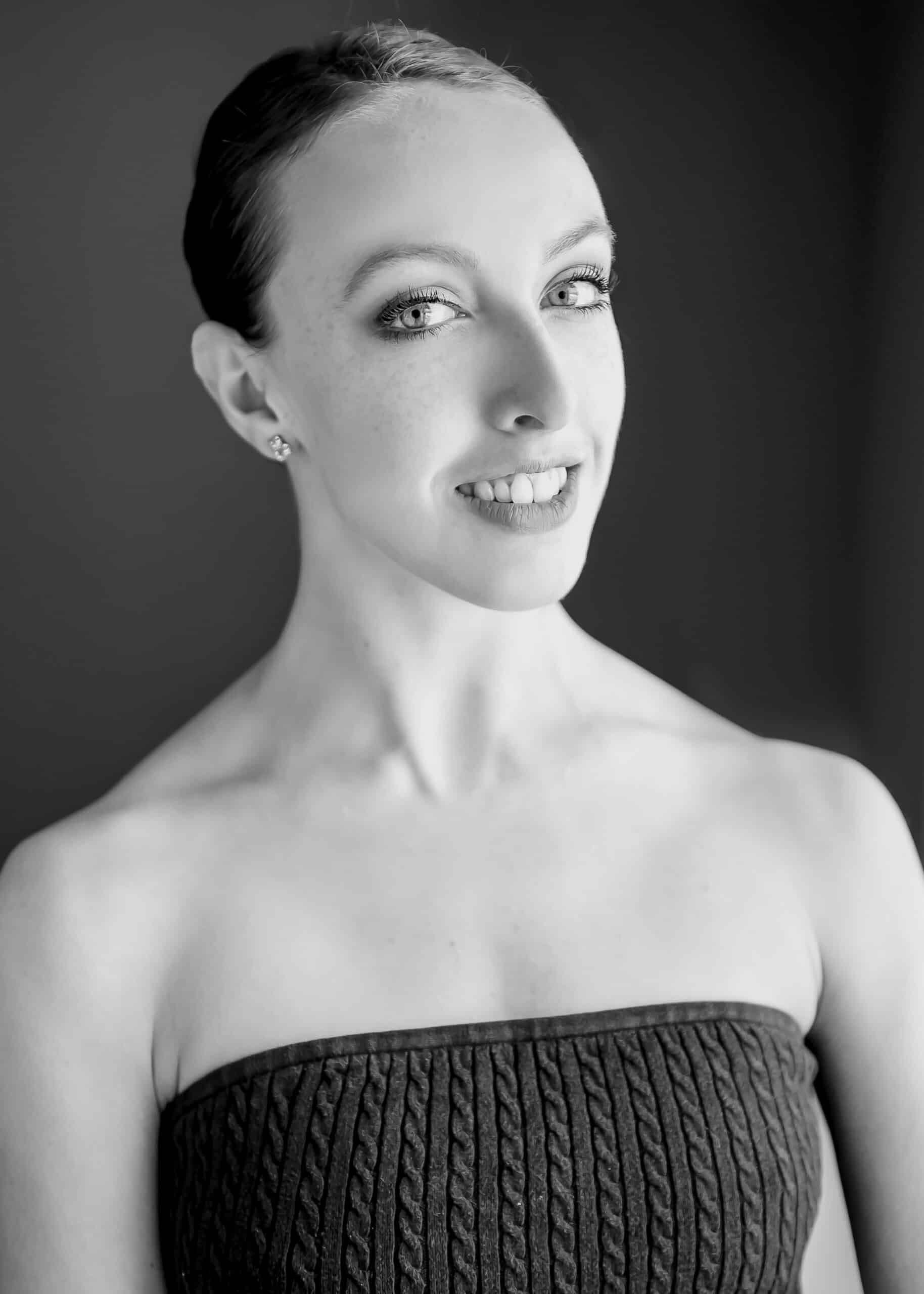 Dona Wiley received her pre-professional dance training at the Ridgefield Conservatory of Dance in Connecticut under the direction of James Robey, and studied at many professional level summer ballet intensives including the American Ballet Theater Summer Program in New York City. Dona Wiley is an ABT® Certified Teacher, who has successfully completed the ABT® Teacher Training Intensive in Pre-Primary through Level 3 of the ABT® National Training Curriculum. As a freelance dancer, Dona currently works with the New York based dance companies Lydia Johnson Dance, Nomad Contemporary Ballet, Neville Dance Theatre, Neglia Ballet Artists, and as the rehearsal director and co-founder of CelloPointe. Her past company credits also include Connecticut Ballet, Staten Island Ballet, Felice Lesser Dance Theatre, IKADA Dance, Ballet Inc, and the Taormina Teatro Group where she enjoyed a principal dance role int he off-broadway play Tchaikovsky. Notable career highlights include performing the title role in Staten Island Ballet’s production of Carmen, as well as dancing the choreography of George Balanchine, Emery LeCrone, Gabrielle Lamb, and David Fernandez, among others. As a dance instructor Dona has taught ballet and pointe, choreographed new works, and set classical repertoire in studios throughout New York, Connecticut, and New Jersey.
Dona Wiley received her pre-professional dance training at the Ridgefield Conservatory of Dance in Connecticut under the direction of James Robey, and studied at many professional level summer ballet intensives including the American Ballet Theater Summer Program in New York City. Dona Wiley is an ABT® Certified Teacher, who has successfully completed the ABT® Teacher Training Intensive in Pre-Primary through Level 3 of the ABT® National Training Curriculum. As a freelance dancer, Dona currently works with the New York based dance companies Lydia Johnson Dance, Nomad Contemporary Ballet, Neville Dance Theatre, Neglia Ballet Artists, and as the rehearsal director and co-founder of CelloPointe. Her past company credits also include Connecticut Ballet, Staten Island Ballet, Felice Lesser Dance Theatre, IKADA Dance, Ballet Inc, and the Taormina Teatro Group where she enjoyed a principal dance role int he off-broadway play Tchaikovsky. Notable career highlights include performing the title role in Staten Island Ballet’s production of Carmen, as well as dancing the choreography of George Balanchine, Emery LeCrone, Gabrielle Lamb, and David Fernandez, among others. As a dance instructor Dona has taught ballet and pointe, choreographed new works, and set classical repertoire in studios throughout New York, Connecticut, and New Jersey.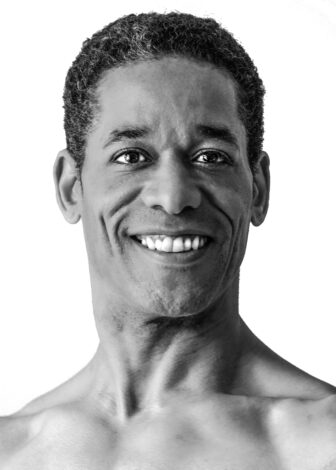
 Polly Kingsbury has had an extensive career in dance education. She has taught ballet, modern and jazz throughout Westchester and Connecticut. Polly spent most of her life studying and teaching at the Steffi Nossen School of Dance. During her tenure there she served in many capacities including Educational Director, Operations Director and Senior Staff Instructor. While there she hired, trained and supervised the teaching staff for the Steffi Nossen method curriculum classes and choreographed for the Junior Master Class, Concert Group and many performance groups. She was the Steffi Nossen Children’s Show director and producer from 1979-2004. Her choreography has been performed at the Performing Arts Center at Purchase College. After moving to CT in 2004 she continues to serve as a consultant there. Polly has served as the Dance Coordinator for the Rye City Public Schools teaching PAC and choreographing for musicals, revues and choral groups within the district. For many years she served as a visiting instructor for the Westchester Arts Council teaching classes and workshops for special needs groups throughout the county. Polly has taught and lectured for the Hole in the Wall Gang “COPE” weekends in Southbury, CT. Polly’s performance credits include the Barnspace Dance Project based in Katonah NY and A New Generation of Dance at the Emelin Theatre in Larchmont, NY. Since moving to CT in 2004, Polly has been an enthusiastic supporter of RCD as a guest teacher, student, rehearsal assistant, seamstress, and much more. She is thrilled to be serving in this new capacity at RCD.
Polly Kingsbury has had an extensive career in dance education. She has taught ballet, modern and jazz throughout Westchester and Connecticut. Polly spent most of her life studying and teaching at the Steffi Nossen School of Dance. During her tenure there she served in many capacities including Educational Director, Operations Director and Senior Staff Instructor. While there she hired, trained and supervised the teaching staff for the Steffi Nossen method curriculum classes and choreographed for the Junior Master Class, Concert Group and many performance groups. She was the Steffi Nossen Children’s Show director and producer from 1979-2004. Her choreography has been performed at the Performing Arts Center at Purchase College. After moving to CT in 2004 she continues to serve as a consultant there. Polly has served as the Dance Coordinator for the Rye City Public Schools teaching PAC and choreographing for musicals, revues and choral groups within the district. For many years she served as a visiting instructor for the Westchester Arts Council teaching classes and workshops for special needs groups throughout the county. Polly has taught and lectured for the Hole in the Wall Gang “COPE” weekends in Southbury, CT. Polly’s performance credits include the Barnspace Dance Project based in Katonah NY and A New Generation of Dance at the Emelin Theatre in Larchmont, NY. Since moving to CT in 2004, Polly has been an enthusiastic supporter of RCD as a guest teacher, student, rehearsal assistant, seamstress, and much more. She is thrilled to be serving in this new capacity at RCD.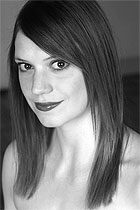 Mary Beth Hansohn received her professional training at The Arlington Center for Dance in Arlington, VA, and studied ballet in the hightest level at The American Ballet Theater Summer Program in New York City, where she performed George Balanchine’s Theme and Variations. She joined The Ohio Ballet as a full member at age 18, and went on to dance in works by Heinz Poll, Donald Byrd, Laura Dean, Ann Marie DeAngelo, Lynne Taylor-Corbett, Stephen Mills, Septime Webre, Salvatore Aiello, Dermot Burke, Val Caniparoli, Jeffrey Hughes, Twyla Tharp, and Alonzo King. Mary Beth has performed with Dayton Ballet, Cincinnati Ballet, The Cleveland Opera, D.C. Contemporary Dance Festival, Neglia Ballet Artists, The Adam Miller Dance Project, The National Tap Ensemble, and Terra Firma Dance Theatre. Mary Beth performed in the 2011 Victoria’s Secret Fashion Show in New York City, which was televised on CBS. In 2014, she appeared and danced in the new television drama series “Flesh and Bone”. Mary Beth has also worked with Edouard Lock at La La La Human Steps in Montreal, and with Karole Armitage at Armitage Cone! Dance in New York City. Some of Ms. Hansohn’s favorite roles include the title role in Giselle, “Mina Harker” in Dracula, “Gerturde” in Hamlet, Le Corsaire pas de deux, “Russian Girl” in George Balanchine’s Serenade, the pas de trois from George Balanchine’s Agon, “Myrtha” in Giselle, and Unnatural Selection, a pas de deux choreographed and danced with her husband, James Graber. Mary Beth has judged dance competitions and choreographed in dance workshops across the country, and continues to teach ballet and contemporary dance in New York.
Mary Beth Hansohn received her professional training at The Arlington Center for Dance in Arlington, VA, and studied ballet in the hightest level at The American Ballet Theater Summer Program in New York City, where she performed George Balanchine’s Theme and Variations. She joined The Ohio Ballet as a full member at age 18, and went on to dance in works by Heinz Poll, Donald Byrd, Laura Dean, Ann Marie DeAngelo, Lynne Taylor-Corbett, Stephen Mills, Septime Webre, Salvatore Aiello, Dermot Burke, Val Caniparoli, Jeffrey Hughes, Twyla Tharp, and Alonzo King. Mary Beth has performed with Dayton Ballet, Cincinnati Ballet, The Cleveland Opera, D.C. Contemporary Dance Festival, Neglia Ballet Artists, The Adam Miller Dance Project, The National Tap Ensemble, and Terra Firma Dance Theatre. Mary Beth performed in the 2011 Victoria’s Secret Fashion Show in New York City, which was televised on CBS. In 2014, she appeared and danced in the new television drama series “Flesh and Bone”. Mary Beth has also worked with Edouard Lock at La La La Human Steps in Montreal, and with Karole Armitage at Armitage Cone! Dance in New York City. Some of Ms. Hansohn’s favorite roles include the title role in Giselle, “Mina Harker” in Dracula, “Gerturde” in Hamlet, Le Corsaire pas de deux, “Russian Girl” in George Balanchine’s Serenade, the pas de trois from George Balanchine’s Agon, “Myrtha” in Giselle, and Unnatural Selection, a pas de deux choreographed and danced with her husband, James Graber. Mary Beth has judged dance competitions and choreographed in dance workshops across the country, and continues to teach ballet and contemporary dance in New York.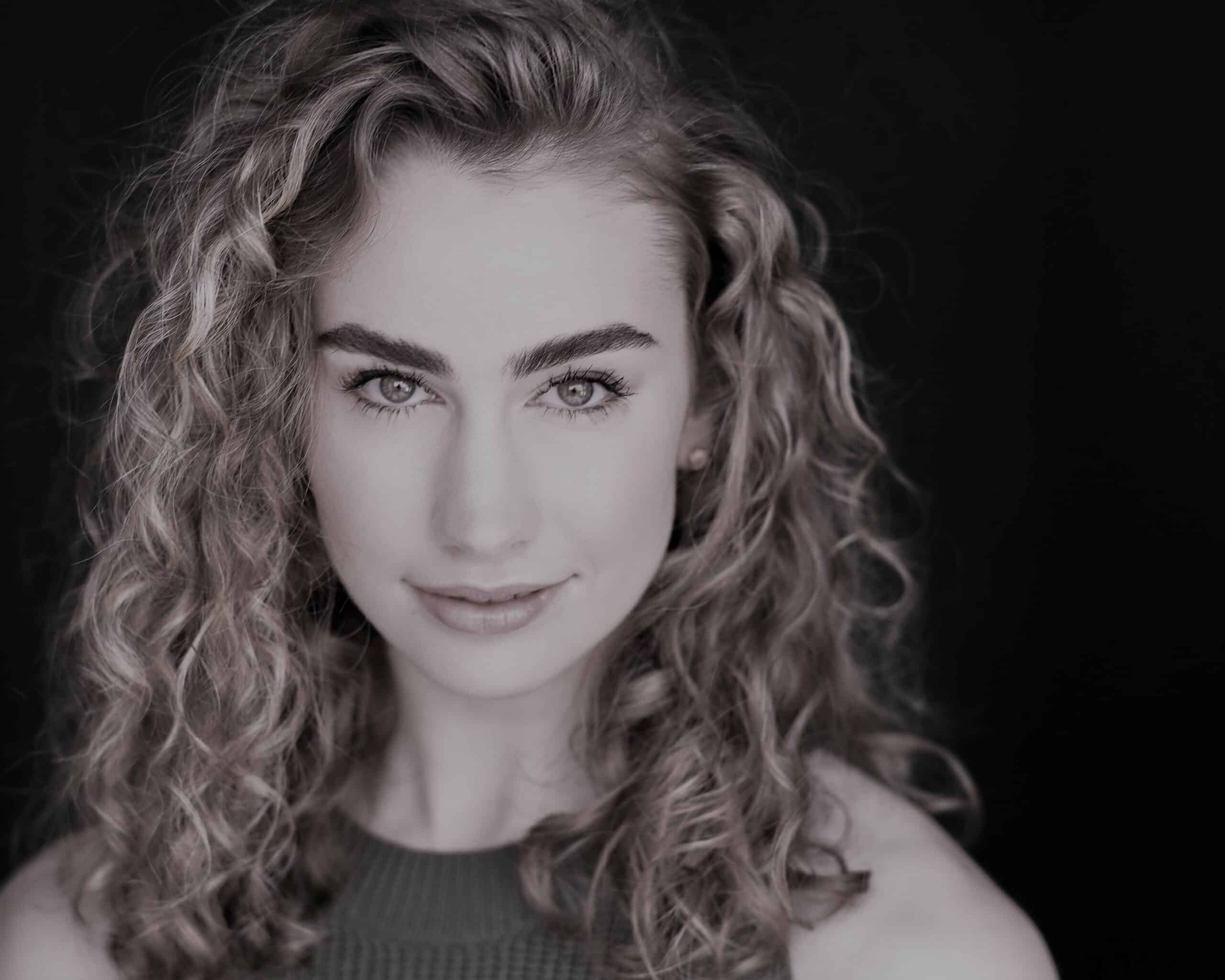 Kelly graduated Summa Cum Laude from Pace University with a B.S. in commercial dance and psychology. At Pace, she performed works by Andy Blankenbuehler, Jessica Lang, Chloe Arnold, and Jason Samuels Smith. She began her training at the Ridgefield Conservatory of Dance under James Robey, and continued her training at Fineline Theatre Arts under Elizabeth Parkinson and Scott Wise, and Mary Ann Lamb. She has also studied under Twyla Tharp, and performed works such as The Fugue and Burundi Drums. Most recently, she has been seen on the national tour of 42nd Street, which was helmed by the 2001 Tony Award-winning team of Mark Bramble and Randy Skinner. In addition, Kelly has performed with the New Bedford Festival Theatre, Ocean Professional Theatre Company, and the Carnegie Hall Exchange. Favorite credits include My Fair Lady, Singin’ in the Rain, and Crazy For You. Aside from performing, Kelly has been teaching a wide variety of styles for 5 years, from students in creative movement to adult levels.
Kelly graduated Summa Cum Laude from Pace University with a B.S. in commercial dance and psychology. At Pace, she performed works by Andy Blankenbuehler, Jessica Lang, Chloe Arnold, and Jason Samuels Smith. She began her training at the Ridgefield Conservatory of Dance under James Robey, and continued her training at Fineline Theatre Arts under Elizabeth Parkinson and Scott Wise, and Mary Ann Lamb. She has also studied under Twyla Tharp, and performed works such as The Fugue and Burundi Drums. Most recently, she has been seen on the national tour of 42nd Street, which was helmed by the 2001 Tony Award-winning team of Mark Bramble and Randy Skinner. In addition, Kelly has performed with the New Bedford Festival Theatre, Ocean Professional Theatre Company, and the Carnegie Hall Exchange. Favorite credits include My Fair Lady, Singin’ in the Rain, and Crazy For You. Aside from performing, Kelly has been teaching a wide variety of styles for 5 years, from students in creative movement to adult levels.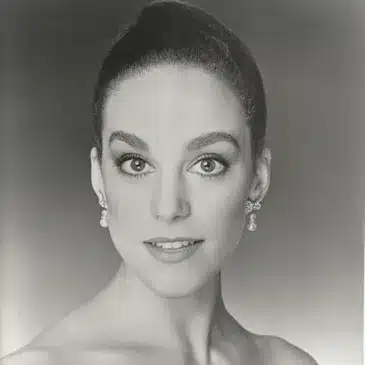
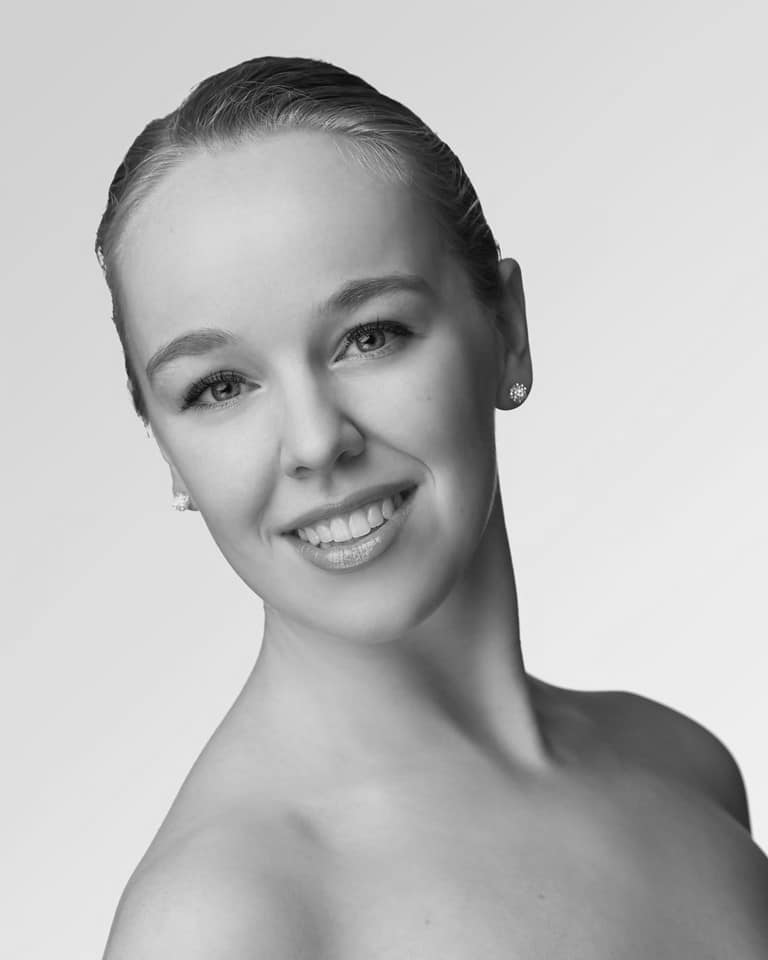
 Robyn began her training at the Ridgefield Conservatory of Dance under James Robey. Her ballet training includes summer intensives such as The Bolshoi Ballet, The Ailey School, The Gelsey Kirkland Academy of Classical Ballet, and The Central Pennsylvania Youth Ballet among others. In 2015, she was the recipient of the Patricia Schuster Award and proceeded to earn her degree in dance from Adelphi University. Robyn furthered her ballet education with private coaching under notable dancers such as Ashley Bouder, Carol Sumner, Flavio Salazar, Hilda Morales, Marnie Thomas and Tiler Peck. Robyn currently teaches for Ridgefield Academy Landmark Preschool in Westport, CT.
Robyn began her training at the Ridgefield Conservatory of Dance under James Robey. Her ballet training includes summer intensives such as The Bolshoi Ballet, The Ailey School, The Gelsey Kirkland Academy of Classical Ballet, and The Central Pennsylvania Youth Ballet among others. In 2015, she was the recipient of the Patricia Schuster Award and proceeded to earn her degree in dance from Adelphi University. Robyn furthered her ballet education with private coaching under notable dancers such as Ashley Bouder, Carol Sumner, Flavio Salazar, Hilda Morales, Marnie Thomas and Tiler Peck. Robyn currently teaches for Ridgefield Academy Landmark Preschool in Westport, CT.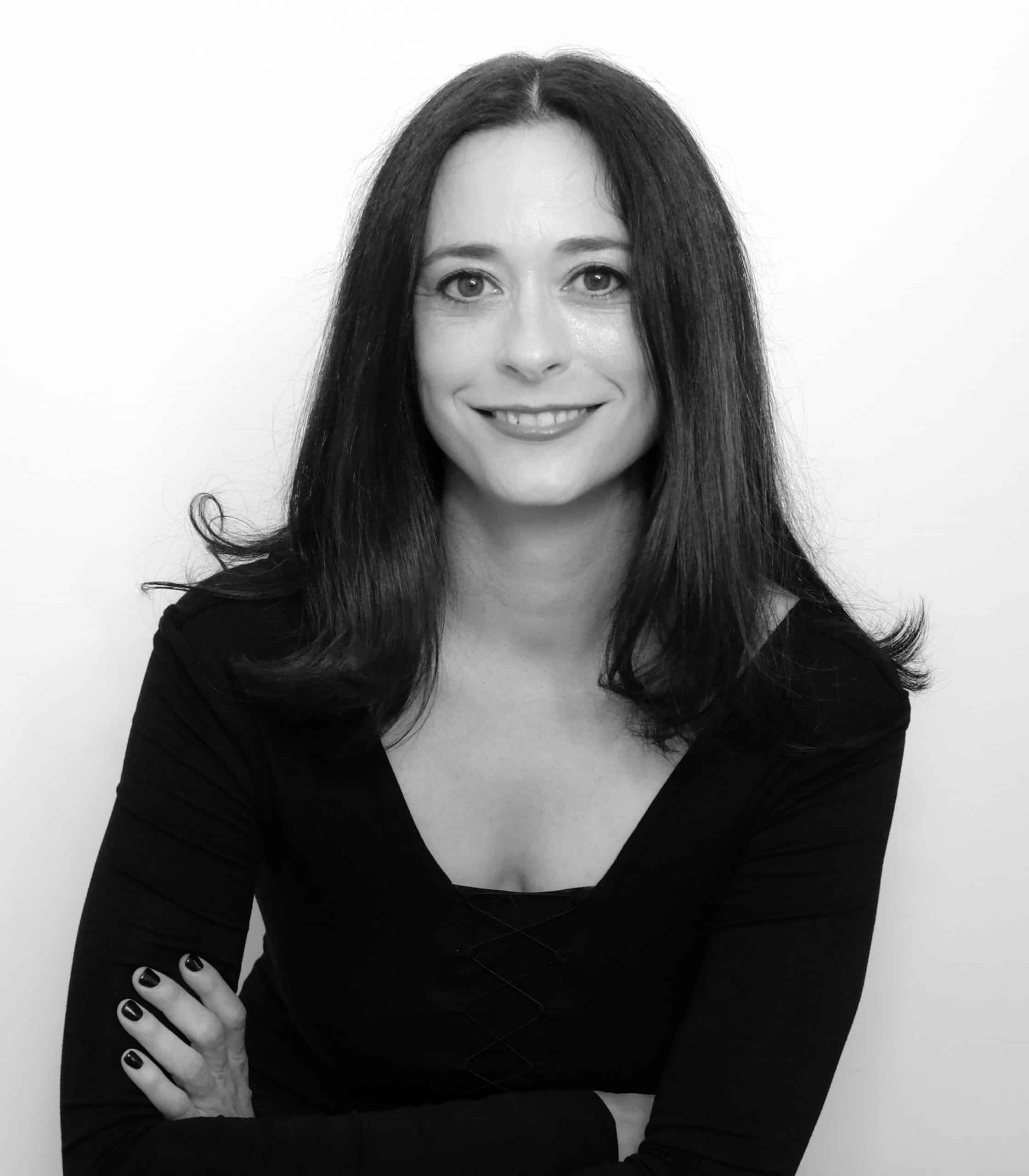 Amy trained at the Boston Conservatory and the Martha Graham School of Contemporary Dance, where she received scholarships from the Gregory Peck Foundation and as a Finalist for the Coca-Cola Award for Artistic Excellence. Ms. Piantaggini is a former member of the Martha Graham Dance Company and the Martha Graham Dance Ensemble, in which she danced many soloist roles including “Satyric Festival Song” and “Conversation of Lovers”. Anna Kisselgoff of the New York Times said that Amy “made a luminous New York debut in Graham’s abstract view…” October 7, 1998. Amy has danced for the companies of Javier Dzul, Richard Move, and James Robey, and currently dances for Edgar Cortes Dance Theater. Amy’s teaching experience includes numerous schools throughout New England including the Hartt School/University of Hartford and as a Graham-based master class guest instructor for Central Michigan State University, Webster University, Western Connecticut University, Endicott College, Sacred Heart University, Barnard College, and Dean College. She received her MFA in Interdisciplinary Arts from Goddard College with a focus in early American Modern Dance and Embodiment Studies. Ms. Piantaggini is a member of the National Dance Education Organization, and served on the Danbury Dance Initiative task force. She established RCD as a charter for National Honors Society for Dance Arts in 2016. Amy is the recipient of the New Connections Award in 2022 for mentoring young women and the Nancy Comstock Andrews Superlative Teaching/Mentoring Award in 2018 for her extensive collaborations between the Conservatory and countless Ridgefield arts organizations. Amy also serves as a Committee Member for the Dance Studios Mentoring Program for the National Dance Education Organization (NDEO).
Amy trained at the Boston Conservatory and the Martha Graham School of Contemporary Dance, where she received scholarships from the Gregory Peck Foundation and as a Finalist for the Coca-Cola Award for Artistic Excellence. Ms. Piantaggini is a former member of the Martha Graham Dance Company and the Martha Graham Dance Ensemble, in which she danced many soloist roles including “Satyric Festival Song” and “Conversation of Lovers”. Anna Kisselgoff of the New York Times said that Amy “made a luminous New York debut in Graham’s abstract view…” October 7, 1998. Amy has danced for the companies of Javier Dzul, Richard Move, and James Robey, and currently dances for Edgar Cortes Dance Theater. Amy’s teaching experience includes numerous schools throughout New England including the Hartt School/University of Hartford and as a Graham-based master class guest instructor for Central Michigan State University, Webster University, Western Connecticut University, Endicott College, Sacred Heart University, Barnard College, and Dean College. She received her MFA in Interdisciplinary Arts from Goddard College with a focus in early American Modern Dance and Embodiment Studies. Ms. Piantaggini is a member of the National Dance Education Organization, and served on the Danbury Dance Initiative task force. She established RCD as a charter for National Honors Society for Dance Arts in 2016. Amy is the recipient of the New Connections Award in 2022 for mentoring young women and the Nancy Comstock Andrews Superlative Teaching/Mentoring Award in 2018 for her extensive collaborations between the Conservatory and countless Ridgefield arts organizations. Amy also serves as a Committee Member for the Dance Studios Mentoring Program for the National Dance Education Organization (NDEO).